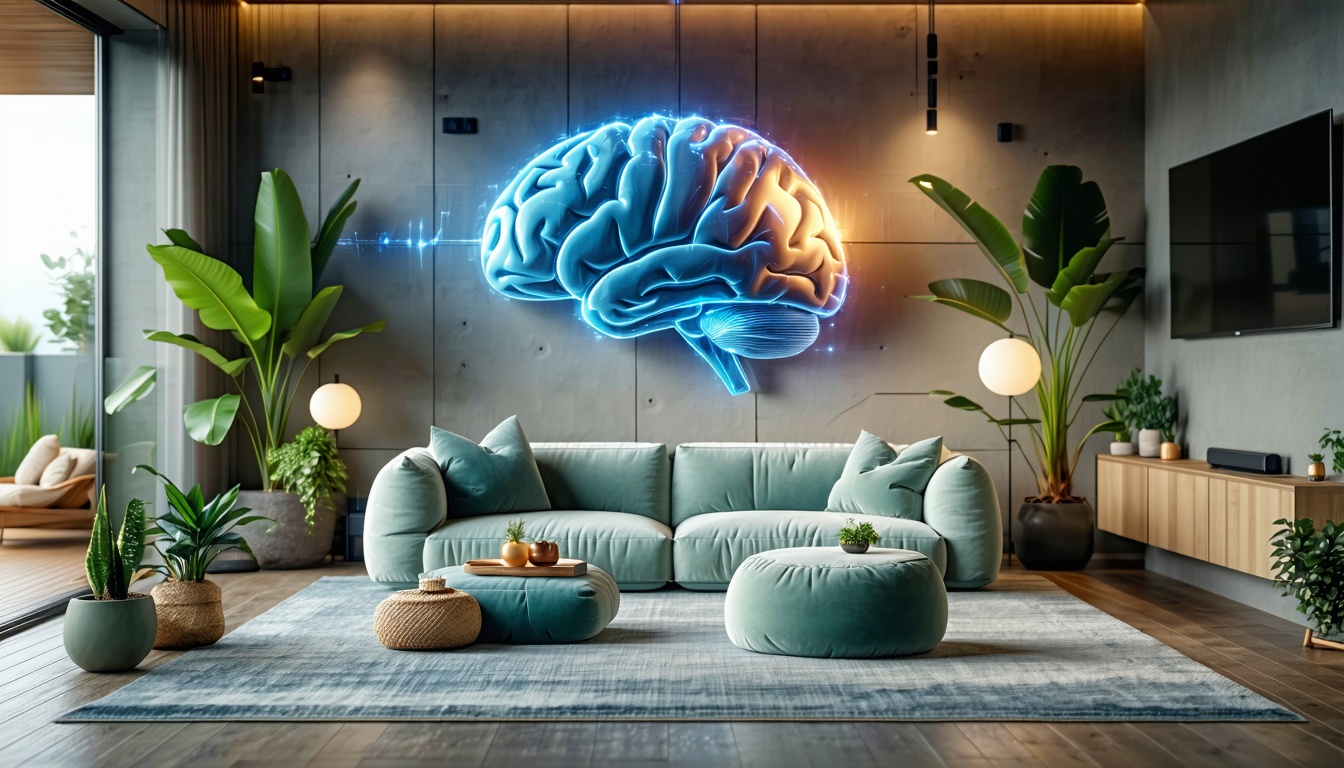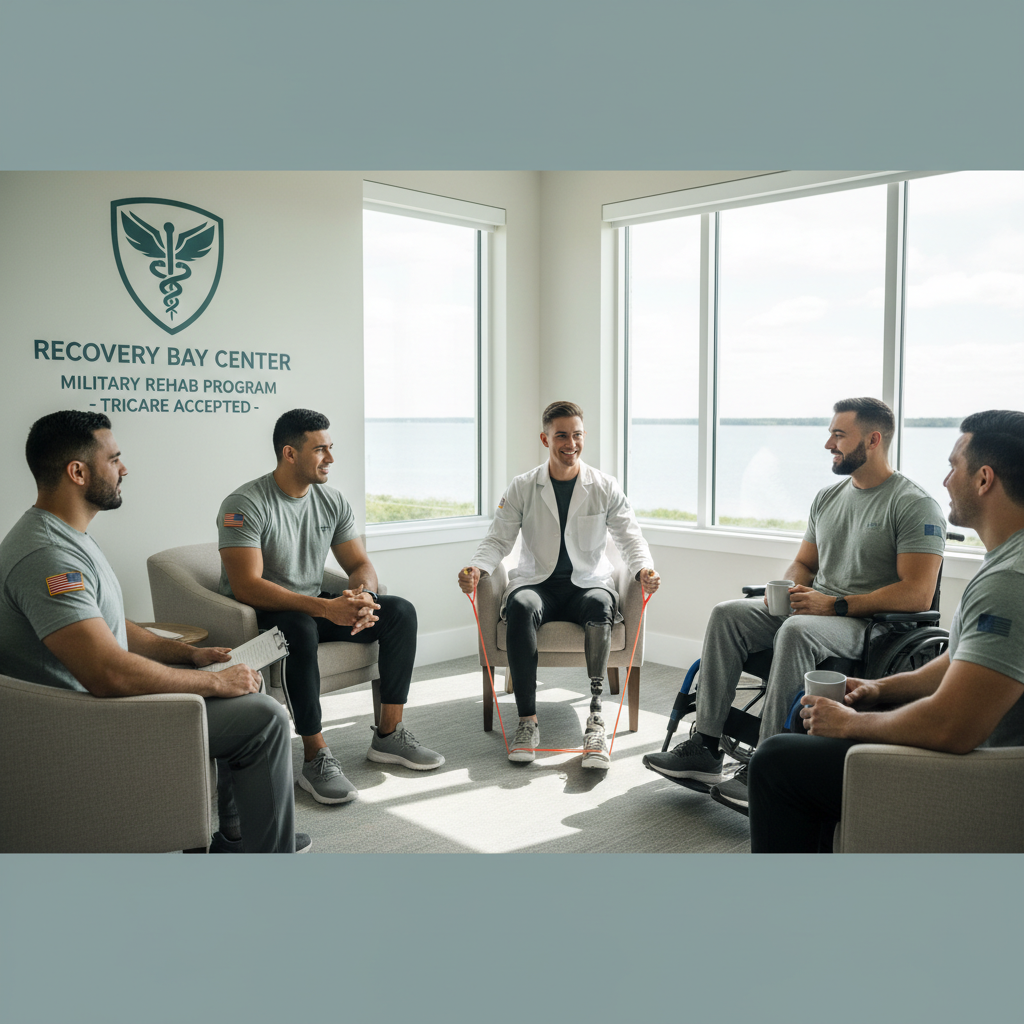Understanding EMDR trauma therapy
Experiencing persistent cycles of drug or alcohol misuse can sometimes stem from deeper emotional wounds. These wounds are often rooted in past traumatic events, which may influence your thoughts, behaviors, and coping strategies. EMDR trauma therapy is one approach that seeks to alleviate the harmful effects of such trauma by helping you or a loved one reshape distressing memories into more manageable experiences.
Eye Movement Desensitization and Reprocessing (EMDR) is recognized by multiple global health authorities, including the Department of Veterans Affairs and Department of Defense in the United States, for its ability to treat post-traumatic stress disorder (PTSD). According to the Cleveland Clinic [1], the therapy follows a structured process of eight phases, guiding individuals through recalling distressing memories while engaging in bilateral stimulation such as eye movements. This mental reprocessing helps you form new associations with traumatic events, reducing the emotional or behavioral impact they once held.
Many men find themselves turning to substances in an effort to numb trauma and other emotional burdens. Through EMDR trauma therapy, a crucial barrier to long-term recovery can be addressed by better processing these emotionally charged memories. At Recovery Bay Center, a dedicated men’s detox and rehab program, we understand these challenges. We embrace EMDR as part of our holistic approach to promoting both healing and sustained sobriety.
EMDR’s recognition and credibility
Since its introduction in the late 1980s by psychologist Francine Shapiro, EMDR has undergone numerous clinical trials confirming its effectiveness. Early research from the American Psychiatric Association in 2004 equated EMDR’s status for addressing PTSD symptoms to that of Cognitive Behavioral Therapy (CBT) [2]. Over the years, additional studies have highlighted EMDR’s positive impact not only on PTSD, but also on conditions like depression, anxiety, specific phobias, and traumatic grief. This wide-ranging application makes EMDR a powerful tool in addiction recovery, where past trauma often lingers beneath the surface.
How EMDR differs from conventional talk therapy
Many traditional therapies rely heavily on discussion, reflection, and problem-solving methods to gradually cope with trauma. EMDR, by contrast, involves focusing on specific distressing memories or emotions while a trained therapist assists with bilateral stimulation—often in the form of eye movements, taps, or auditory tones. This mechanism appears to expedite how your brain reprocesses the memory, enabling you to adopt more adaptive interpretations of events that formerly triggered harmful behaviors.
By allowing you to revisit traumatic material in a safe and controlled environment, EMDR makes it possible to gradually reduce the emotional charge attached to difficult memories. In a men’s recovery context, this helps address social pressures and gender norms that can compound the effects of trauma. Through the guided reprocessing of memory, men may find it easier to communicate vulnerabilities and seek help in a comfortable, non-judgmental setting.
How EMDR works
Although EMDR may sound technical, the principles behind it are straightforward: our brains naturally strive to process experiences in adaptive ways. When trauma occurs, this process can be disrupted, and memories get “stuck.” By activating both sides of the brain through bilateral stimulation, EMDR trauma therapy fosters the reintegration of these stuck memories. Not only does this help reduce intrusive thoughts, flashbacks, and triggers, but it also supports the development of healthier emotional and behavior patterns.
The eight phases of EMDR
EMDR therapy is typically delivered in eight sequential phases:
History-taking and treatment planning
Your therapist gathers information about your history, current challenges, and specific stressors. This phase helps identify the primary targets for your EMDR sessions, including traumatic memories or disturbing beliefs.Preparation
You and your therapist build a therapeutic alliance, discussing coping strategies, relaxation techniques, and expectations for the therapy process. This ensures you feel supported and resilient enough to face painful memories.Assessment
The traumatic memory is accessed, and you identify the sensory experiences, negative beliefs, and emotions connected to it. Positive beliefs are also established to replace the negative ones once reprocessing is complete.Desensitization
Bilateral stimulation, such as eye movements or tapping, is introduced while you focus on the traumatic memory. Over multiple sets of stimulation, the memory becomes less vivid, and distressing emotions may gradually decrease.Installation
The therapist helps you pair more adaptive beliefs, meanings, or emotional responses to your memory. These constructive beliefs may center on your self-worth, future goals, or personal strengths.Body scan
You identify any lingering tension or discomfort in your body. If physical sensations remain, they are further processed with bilateral stimulation until resolved or reduced.Closure
Each session ends with a debriefing and guided relaxation. You learn how to handle any residual feelings between sessions, practicing self-soothing strategies whenever flashbacks or anxieties arise.Reevaluation
In subsequent sessions, your therapist checks on your emotional status, residual triggers, and overall progress before continuing or finishing EMDR.
This methodical approach is beneficial in a men’s rehab setting, where breakthroughs often arise from exploring hidden trauma. By pinpointing specific memories, men can reduce triggers that contribute to substance use, empowering them to step away from destructive coping strategies.
Benefits for men’s addiction recovery
Choosing an approach that addresses both substance dependence and underlying trauma can be transformational for men. Societal expectations often call for men to “power through” challenges independently, discouraging emotional expression. Over time, this can lead to unresolved trauma, heightened anxiety, and increased reliance on substances for coping. EMDR trauma therapy addresses this cycle at its root, helping you confront emotional pain safely.
Targeting co-occurring mental health conditions
Trauma and addiction frequently coexist with mental health concerns such as depression or anxiety. EMDR’s structured framework can help unravel these overlapping issues. As you work through painful experiences, you may notice a diminishment in depressive symptoms, anxiety, or stress-related disorders [3]. This makes EMDR particularly useful in a dual diagnosis scenario, where integrated treatment is vital.
Because unresolved trauma can often complicate any co-occurring condition, effective therapy needs to address each issue. In many cases, supplementing EMDR with psychiatric support therapy and dual diagnosis therapy maximizes the potential for lasting relief, offering a comprehensive framework that covers every facet of your recovery journey.
Building resilience and healthier relationships
Within a men’s rehab center, such as Recovery Bay Center, you can find peer connections that reinforce the resilience gained from EMDR. Sharing experiences in therapy groups or workshops allows you to discuss the emotional burdens and triggers associated with traumatic memories, ensuring you do not shoulder the weight of trauma alone. Additionally, men often discover deeper confidence, self-awareness, and trust in healthy relationships when they’ve reclaimed control over their most painful memories.
EMDR can also prevent the relapse cycle that emerges when unprocessed memories trigger harmful substance use. By neutralizing the emotional intensity of these memories, your cravings and impulses often subside, making space for healthier coping strategies such as regular yoga and meditation or attending recovery support groups.
Complementing structured programs
One size does not fit all in addiction treatment. At Recovery Bay Center, EMDR therapy is merged with a range of supportive interventions, from individual therapy for personalized guidance to group therapy that encourages peer empathy. By weaving EMDR into a blend of trauma informed therapy and holistic approaches, men can break free from the limiting grip of traumatic memories while rapidly building positive life skills.
Common side effects and management
While EMDR therapy is widely regarded as a safe and effective treatment, it can produce a range of short-term side effects. These may arise because digging into hidden trauma can momentarily heighten distress, both mentally and physically. Understanding and preparing for potential difficulties can help you navigate them effectively.
Emotional and physical responses
- Emotional distress: Revisiting painful memories may provoke intense emotions. According to High Focus Centers [4], it is common to experience sadness, anger, or fear. These responses typically lessen within hours or days.
- Physical sensations: Mild headaches, nausea, muscle tension, or fatigue are normal if you are working through powerful emotions. They usually subside as you continue the therapy process, but it is essential to stay hydrated and practice good self-care.
- Sleep disturbances: Some individuals report vivid dreams or trouble sleeping in the days following an EMDR session. While disconcerting, this can be part of your brain’s natural integration of newly processed material.
After decades of research, side effects are often most intense at the beginning, then decrease over time. Proper therapist guidance sets you up with coping strategies like calming exercises or journaling before, during, and after sessions.
Duration of side effects
In most cases, short-term effects last from a few hours to a few days, whereas medium-term effects might linger for a couple of weeks. Long-term side effects are infrequent when therapy is provided by a qualified specialist [4]. If you ever feel overwhelmed, consistent communication with your therapist is key. Voicing any concerns early on allows you to adapt your coping strategies or pace of treatment accordingly.
Ensuring safety and progress
To minimize potential risks, choose a facility that employs trained and licensed EMDR specialists. At Recovery Bay Center, we prioritize high standards of care, safeguarding every stage of your treatment. Our professionals often combine EMDR with structured mental health support, ensuring you have the tools to manage emotional or physical discomfort.
Integrating EMDR at Recovery Bay Center
Your journey at Recovery Bay Center revolves around a philosophy of personalized treatment. By weaving EMDR therapy into our men’s detox and rehab services, we address the underlying trauma that frequently fuels substance misuse. Our team harnesses this approach to promote deep-rooted transformation, not just superficial behavior changes.
Personalized treatment plans
Upon admission, you participate in a thorough assessment that uncovers your specific triggers and any prior mental health diagnoses. If EMDR is deemed appropriate, it becomes an integral component in your customized approach. Your plan may also include:
- Medical staff detox to safely manage withdrawal
- Holistic therapy to boost emotional and physical well-being
- Family therapy if you wish to involve loved ones in your recovery
- Men’s mental health counseling to navigate societal pressures and gender-specific concerns
By using an evidence-based mix, we ensure that every part of your recovery—physical, emotional, and spiritual—is nurtured with compassion.
Comprehensive staff support
Our therapists and medical professionals receive ongoing training in EMDR’s latest developments. We appreciate the importance of a trauma-informed approach that recognizes how men may hesitate to express deep-seated fears. Using empathetic language, we create a supportive space that empowers you to explore vulnerable areas of your past.
Furthermore, if you or a loved one has additional mental health conditions like anxiety or depression, licensed clinicians coordinate treatment across multiple modalities. Having trauma group therapy and individual therapy sessions under the same roof means you can work through personal challenges while also sharing strength with peers going through similar journeys.
Real-world application
Ideally, progress made during EMDR sessions is reinforced in your daily life. Our center encourages consistent practice of coping methods—from grounding exercises to mindful breathing—so that you remain calm and resilient, whether you are faced with stressors at work or everyday triggers. Over time, you typically notice a reduction in substance cravings or urges as distressing memories lose their intensity.
Moreover, the environment at Recovery Bay Center fosters camaraderie that permanently reshapes your perspective on recovery. Many individuals choose to stay connected after formal treatment by engaging in the sober community alumni program, ensuring long-term support and guidance.
Combining EMDR with other therapies
Integrating EMDR trauma therapy with complementary treatment strategies can significantly enhance your healing experience. You can unlock lasting change by addressing multiple dimensions of your well-being.
Pairing EMDR with cognitive and holistic methods
- Cognitive approaches: Similar to how dual diagnosis therapy evaluates the mental disorders fueling substance use, CBT and solution-focused approaches help you reshape negative thinking patterns. Blending these with EMDR can accelerate emotional release and replace destructive beliefs with healthier outlooks.
- Holistic wellness: Men can benefit enormously from balancing mind, body, and spirit. Practices like yoga and meditation or breathwork serve as grounding techniques that complement the emotional processing in EMDR.
- Group-based support: Sharing experiences with peers in group sessions reinforces the personal insights gained during EMDR. Hearing from others who have processed their own trauma fosters validation and strengthens commitment to recovery.
Practical coping skills
Therapeutic interventions often include developing practical life skills to sustain your progress. Techniques learned through EMDR, such as visualization and relaxation, comply well with stress management therapy, encouraging you to navigate daily challenges without returning to substance misuse. Additionally, building healthier habits—like consistent exercise, balanced nutrition, and mindful routines—safeguards your emotional stability outside the therapy room.
Family involvement
Because trauma frequently strains relationships, your loved ones might benefit from joining your recovery journey. Engaging in family therapy can help them understand the nature of EMDR and recognize their role in your hopes for a fresh start. Family involvement fosters empathy, cooperation, and accountability, further improving your odds for success.
Frequently asked questions
How does EMDR differ from traditional talk therapy?
EMDR does not rely solely on verbal discussions about traumatic events. Instead, it uses bilateral stimulation such as eye movements or tapping while you focus on specific memories. This allows your brain to reprocess the memory and reduce its emotional intensity. Traditional talk therapy can be a great complement to EMDR but often requires a longer timeline to address deep-seated trauma.Is EMDR safe for severe trauma or long-term addictions?
Yes, EMDR is considered safe for a range of traumatic experiences, including chronic or severe trauma. Used under the guidance of a trained therapist, EMDR is flexible enough to adapt to individuals with longstanding addiction issues. It is also widely backed by organizations like the World Health Organization (WHO) and the Department of Veterans Affairs [1].Are there risks of feeling overwhelmed during EMDR sessions?
It is possible to feel emotionally or physically drained during EMDR, especially when addressing painful memories. However, therapists typically teach coping strategies beforehand and monitor your limits during sessions. Any emotional discomfort is temporary and lessens as reprocessing continues. Regular check-ins with your therapist are crucial if you feel overly distressed.Can EMDR address co-occurring mental health disorders?
Yes, EMDR can help you overcome trauma linked to various conditions, including anxiety and depression. Because it aims to resolve root causes, co-occurring disorders that feed off unresolved trauma may improve simultaneously. At Recovery Bay Center, we often integrate EMDR with other interventions like psychiatric support therapy or dual diagnosis therapy to ensure you receive comprehensive care.What happens if I have more than one traumatic memory?
EMDR therapy can address multiple traumatic events. Typically, the process starts with the most impactful memory and then moves on to others as you progress. Each memory is explored and reprocessed systematically through the eight phases. Over time, this helps reduce the distressing power many memories hold, paving the way to a stable recovery.
Begin your journey to healing
Your path toward freedom from addiction involves addressing not only the physical symptoms of withdrawal, but also the deep-seated emotional wounds that may have led you or a loved one to misuse substances. EMDR trauma therapy offers a scientifically backed and results-driven solution, particularly when it is incorporated into a structured men’s rehab program like that at Recovery Bay Center.
By unlocking memories and reshaping their influence, you can break free from the cycles of self-medication. When combined with complementary therapies such as group therapy, trauma informed therapy, and holistic practices like yoga and meditation, EMDR becomes a key element in a powerful, personalized strategy for healing. Our team supports you every step of the way, ensuring that you feel secure and confident throughout your journey.
AT Recovery Bay Center, we believe trauma does not have to define your future. You can move beyond painful memories that used to wield power over your decisions. Through EMDR, integrated treatment, and an empathetic, all-male support network, you have the freedom to step proudly into a new beginning—motivated, healthier, and free from the past’s hold on your life. If you or a loved one are ready to champion your recovery, we invite you to explore our programs and discover how EMDR therapy can be a bridge to lasting transformation.





